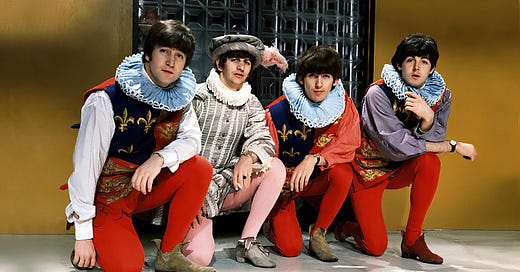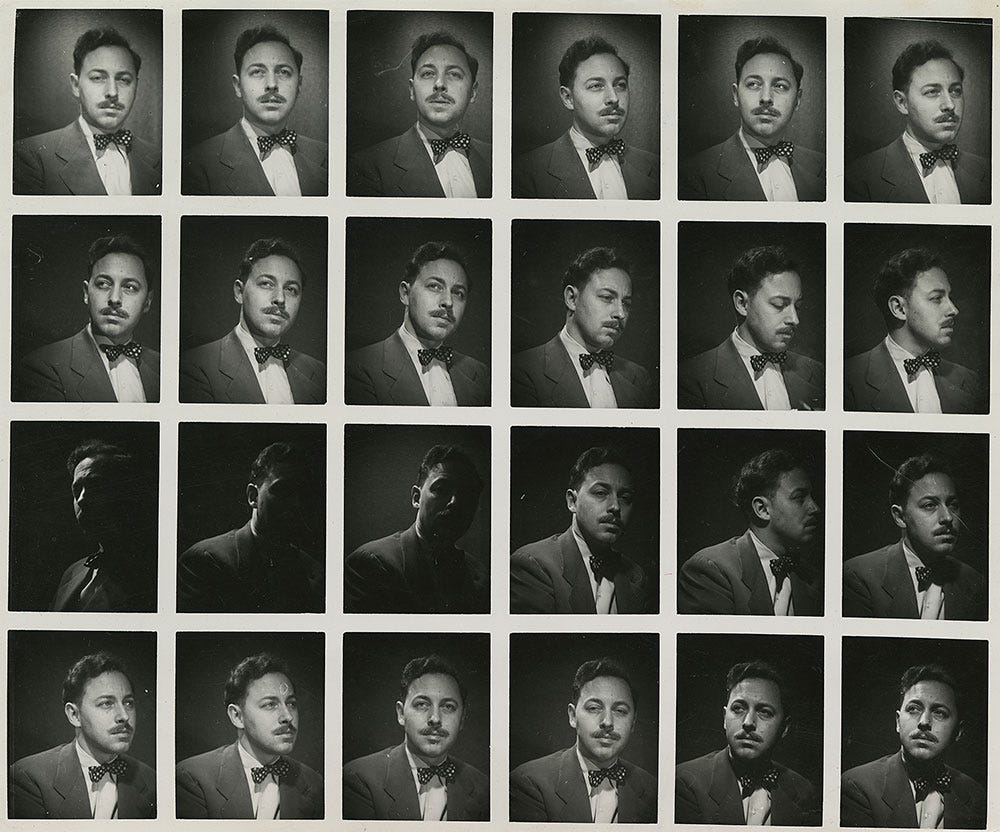“All good art is an indiscretion.” – Tennessee Williams
Another week, another newsletter packed with exciting news and stories about literature and the people behind it.
Cat on a Hot Tin Roof
March 24th marks the 69th anniversary of the Broadway premiere of Cat on a Hot Tin Roof – not a bad gift for author Tennessee Williams, whose birthday comes just two days later, on March 26th. (Check out this brief-ish history of Broadway, if you’re interested!).
Born Thomas Lanier III in 1911, Williams was a renowned American playwright, whose work achieved widespread acclaim for its emotionally charged portrayals of desire, loneliness, and societal repression. His characters are often marginalised, floundering against post-war and mid-century societal norms – both strongly resonating with audiences across the years, and speaking to Williams’ own struggles as an openly gay man in a conservative era.
Set on a Mississippi plantation, Cat on a Hot Tin Roof delves into the dynamics at work within a wealthy Southern family. The play follows the Pollitts, gathering to celebrate the birthday of patriarch Big Daddy (Big Poppa?), who is struggling with a dawning sense of mortality. (Sidenote: the character names in this play are really something to behold – Big Daddy, Brick, Gooper, Reverend Tooker … how do they compare to this list of the 50 funniest character names in cinematic history?). Amidst simmering tensions, buried resentments, and unspoken truths, the story delves into mendacity, greed, and the search for love.
Williams' poetic language and searing insight into the human condition earned him a ton of awards over his lifetime, including two Pulitzer Prizes for Drama (A Streetcar Named Desire in 1948 and Cat on a Hot Tin Roof in 1955), Tony Awards (The Rose Tattoo (1951), written for his longtime partner and muse Frank Merlo – you can read about their powerful, semi-tragic love story here), and American Academy of Arts and Letters Gold Medals.
It turns out this winning streak started early for Tennessee – he was only 16 when he won his first writing contest. In 1927, he responded to a call for submissions for a writing competition being run by The Smart Set magazine, (Tagline: the “magazine of cleverness”), around the theme of “Can a Good Wife be a Good Sport?” Williams felt that, being sixteen and having never been in a relationship, let alone married, the judges were unlikely to take him seriously. So, he assumed the persona of a divorced man, whose wife had been unfaithful, breaking his heart. He started the piece with the following rumination:
Can a woman after marriage maintain the same attitude toward other men as she held before marriage? Can she drink, smoke, and pet with them? Those are questions of really great pertinence to modern married life. In recounting my own unhappy marital experiences, perhaps I can present convincing answers . . .
His mother Edwina later recounted that, after winning the competition (and receiving the $5 prize money), Williams began to get nervous his fraud would be discovered. Apparently, he began “coming into the house through the back door instead of the front as he usually did. [She was] sure he feared the magazine would send someone to the house to check up and discover this supposedly sophisticated divorced prizewinner was sixteen and had never even dated a woman.”
Keep reading with a 7-day free trial
Subscribe to Lit With Charles to keep reading this post and get 7 days of free access to the full post archives.





